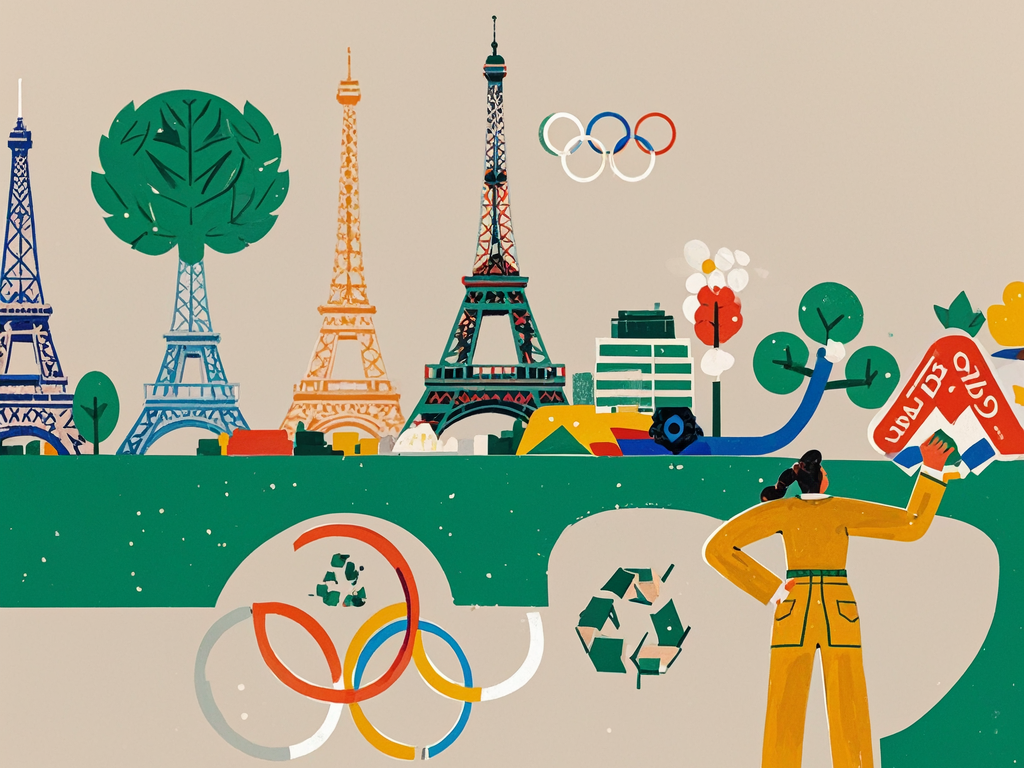Introduction
As the world’s most important sporting event, the Olympic Games attracts a lot of attention. The large-scale constructions and activities that go behind the Olympic Games also cause a huge amount of resource consumption and pressure on the environment. The Olympics is a leader in the field of environmental protection, as the concept of sustainable growth has become more popular.
Hosting the Olympics not only requires many venues and facilities, but also creates a huge amount of waste. It will damage the environment if not managed properly. As the Olympics are the focus of the world, any environmental protection measures taken may attract worldwide attention. The introduction of recycled material is therefore not only an environmentally responsible act, but also a great opportunity to promote social awareness and the concept of sustainable growth.
The Recycled Materials in the Olympics
The application of recycled material on the Olympic stage is diverse, covering a wide range of fields, including metals, plastics and woods.
Metal Recycling is a major part of the medal production process and in building venues. The Olympic medals are made from recycled metals such as gold, copper and silver. This not only gives the medals a unique value, but also reduces demand for new metals. Recycled steel is used extensively in the construction of venues, including frame structures and other components. This reduces costs while also reducing carbon emissions.
The Olympics also provide a chance for plastic materials to “find a new life”. Recycling plastic products like seats and trashcans can give them a new life. Recycling plastics in sports equipment like racket handle and fitness equipment shells is an innovative way to use plastic.
Wood materials contribute to a sustainable Olympic development. Wood materials are used to decorate venues and add a natural feel. Reclaimed wood boards can be used in temporary structures, which meet the functional requirements while also reducing the amount of new wood that is cut.
The use of fiber materials in the construction of venues and athletes’ clothing is important. The use of recycled fibers in the clothing worn by athletes is not only environmentally friendly, but also provides a high level of performance. The use of recycled fibers for carpeting at venues provides comfort and aesthetics, while also reducing the need to purchase raw materials.
How to ensure the quality of recycled plastics – The application of chain extenders in recycled textiles and plastics
Recycled plastics are often faced with quality issues during application. Plastic molecular chains can break due to recycling and usage processes. This leads to a degradation of performance, including reduced strength and toughness. Impurities and contaminants introduced into the recycling process may also have an impact on the quality of plastics.
Chain extenders are widely used in recycled plastics to solve these problems. Chain extenders work by reacting with the molecular end groups in plastics, which causes the chains to grow. This results in improved performance and a better appearance of the plastics. Chain extenders are available in a variety of types including epoxy, isocyanate, and anhydride. Each has its own characteristics and applications.
Epoxy chain extenders, for example, can increase the molecular mass and melt strength in recycled PET and PLA, improving their processing properties and mechanical properties. In practice, by adding a suitable amount of epoxy chain extenders to recycling plastics, their performance can be improved and even surpass that of new materials.
Chain extenders play a significant role in recycled textiles. They can increase the strength, softness and wear resistance of fibers in textiles, thus extending their service life. By extending the chain of recycled textiles they can achieve high-quality performance, and meet Olympic requirements for athlete’s clothing and venue arrangement.
Benefits of Recycling Materials and Conclusion
Recycling materials for the Olympics has many benefits.It reduces the consumption of resources in a way that is beneficial to the environment. The use of recycled materials in the Olympics has a significant impact on the social awareness of the public. It also serves as a model for sustainable development and encourages the application of environmental protection principles in different fields.
Chain extenders are a great way to improve the quality of recycled plastics, textiles and other materials. They can also help them meet the high Olympic standards. We have good reason to believe, looking to the future that the Olympics will continue exploring and innovating in the application recycled materials. They will be leading the global trend of environmental protection. The Olympics will be able to project a more green and sustainable image, and inspire other fields to adopt environmental protection measures and contribute to the future beauty of the Earth.







